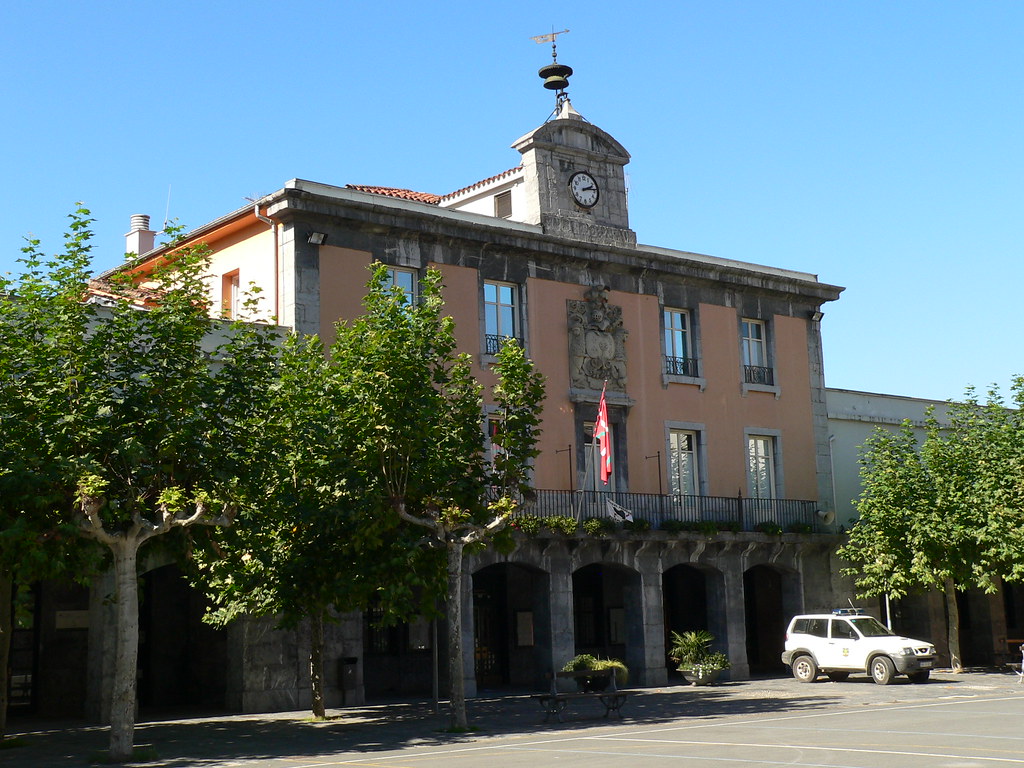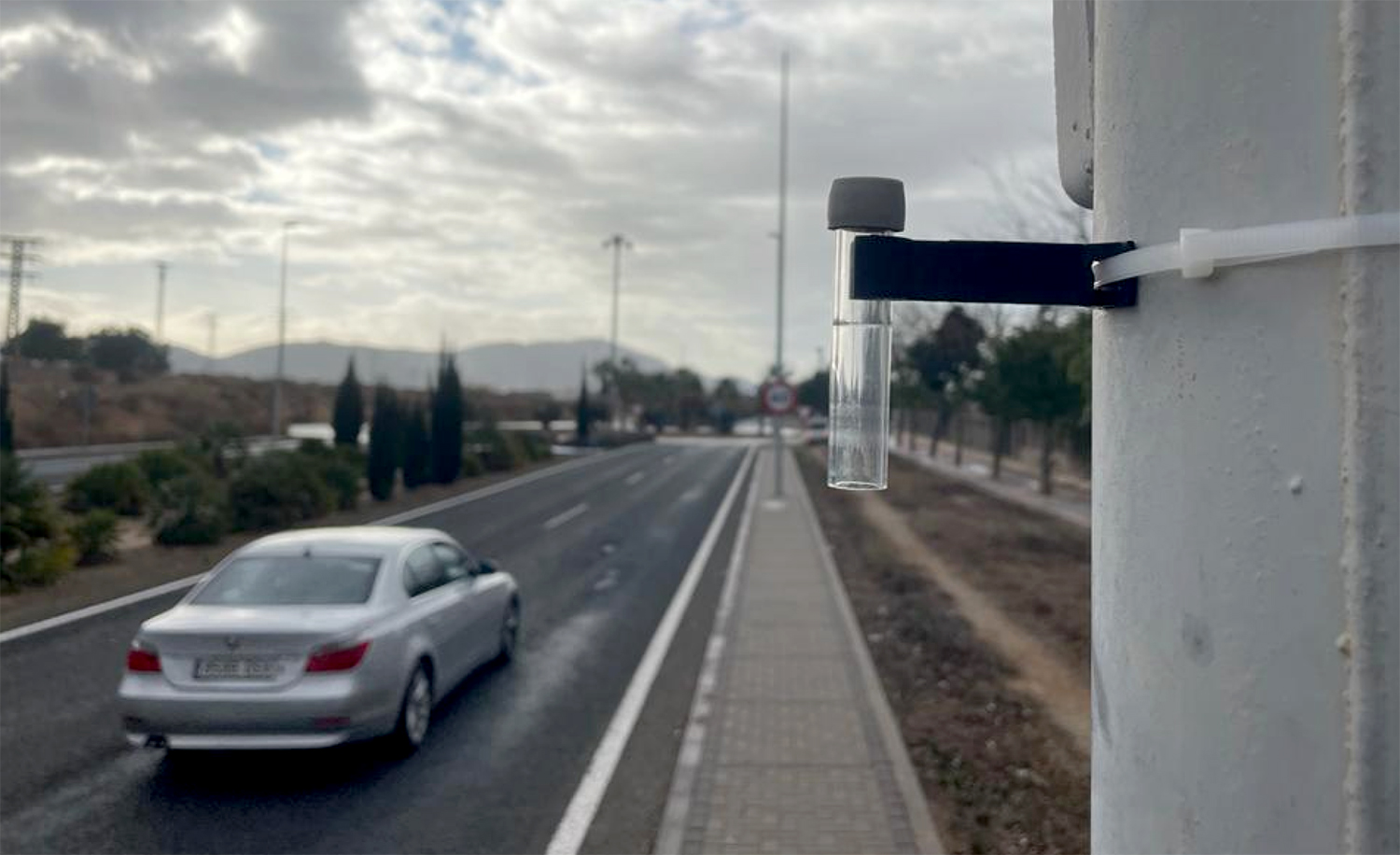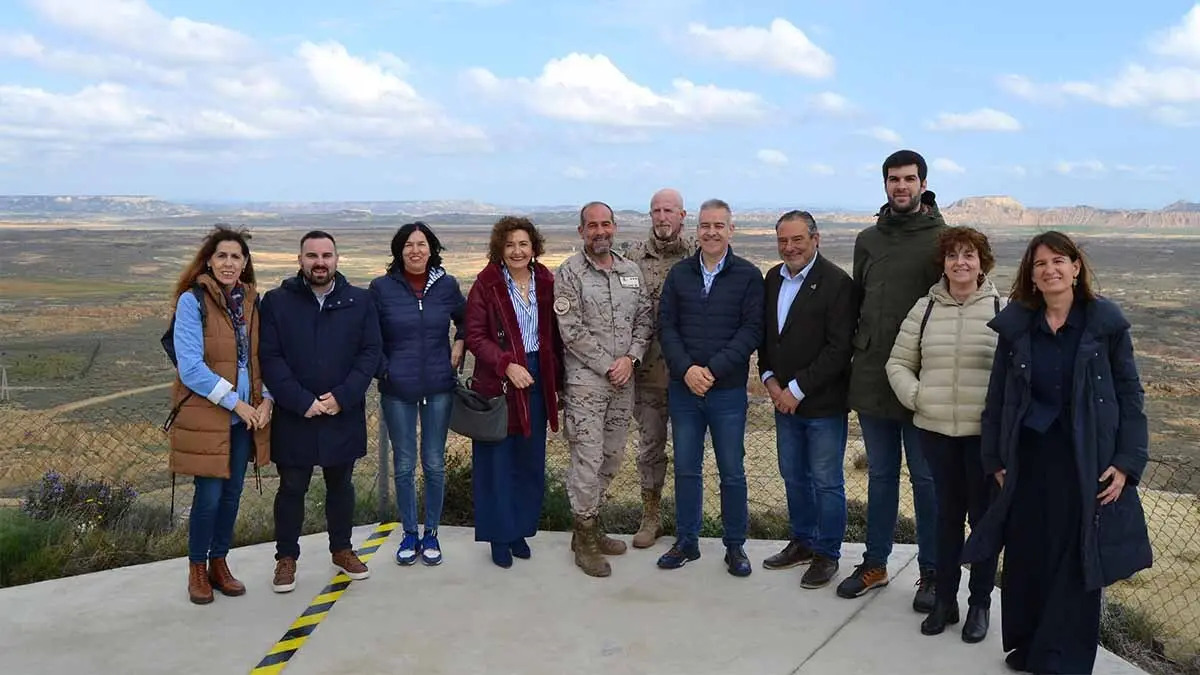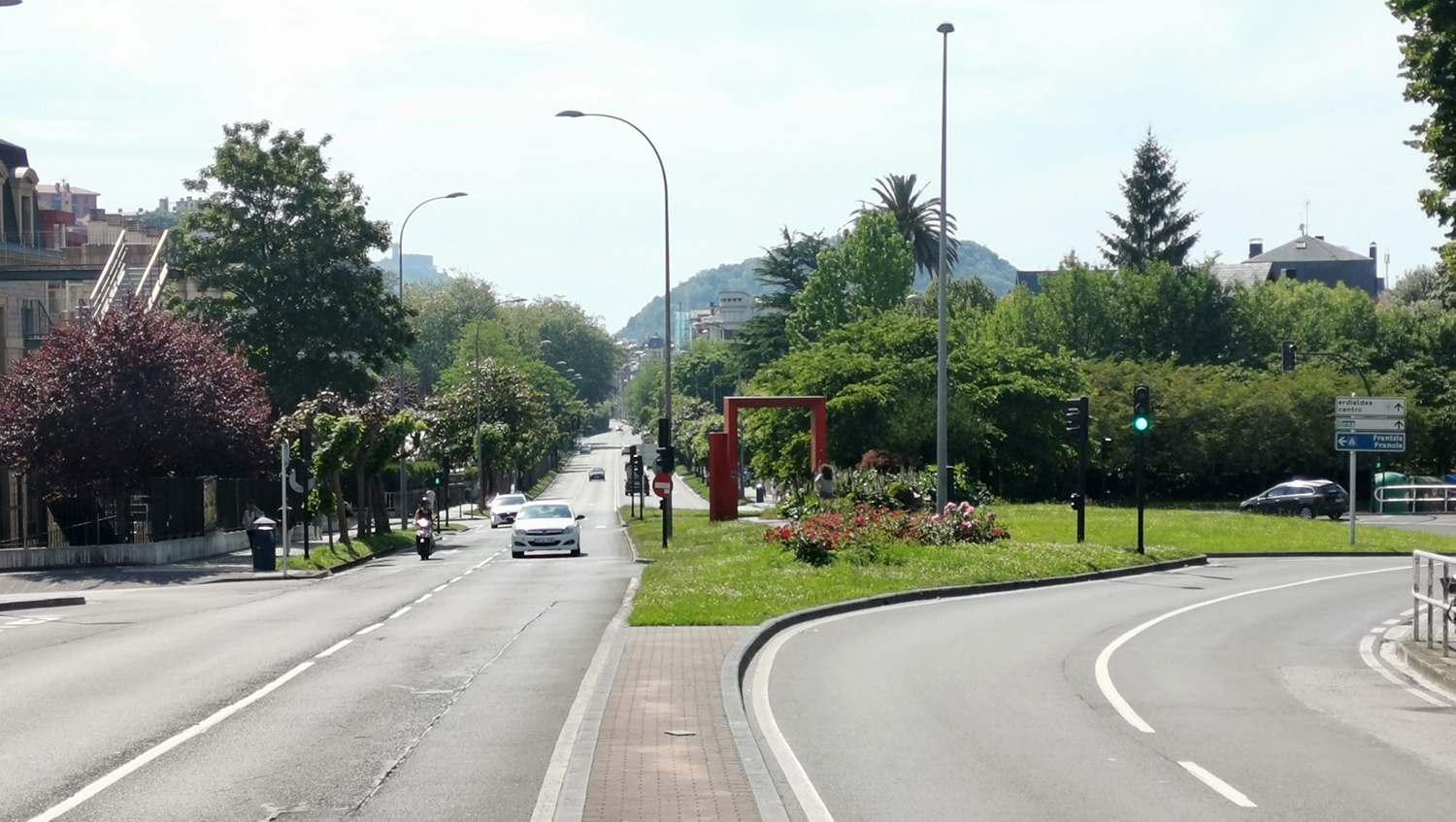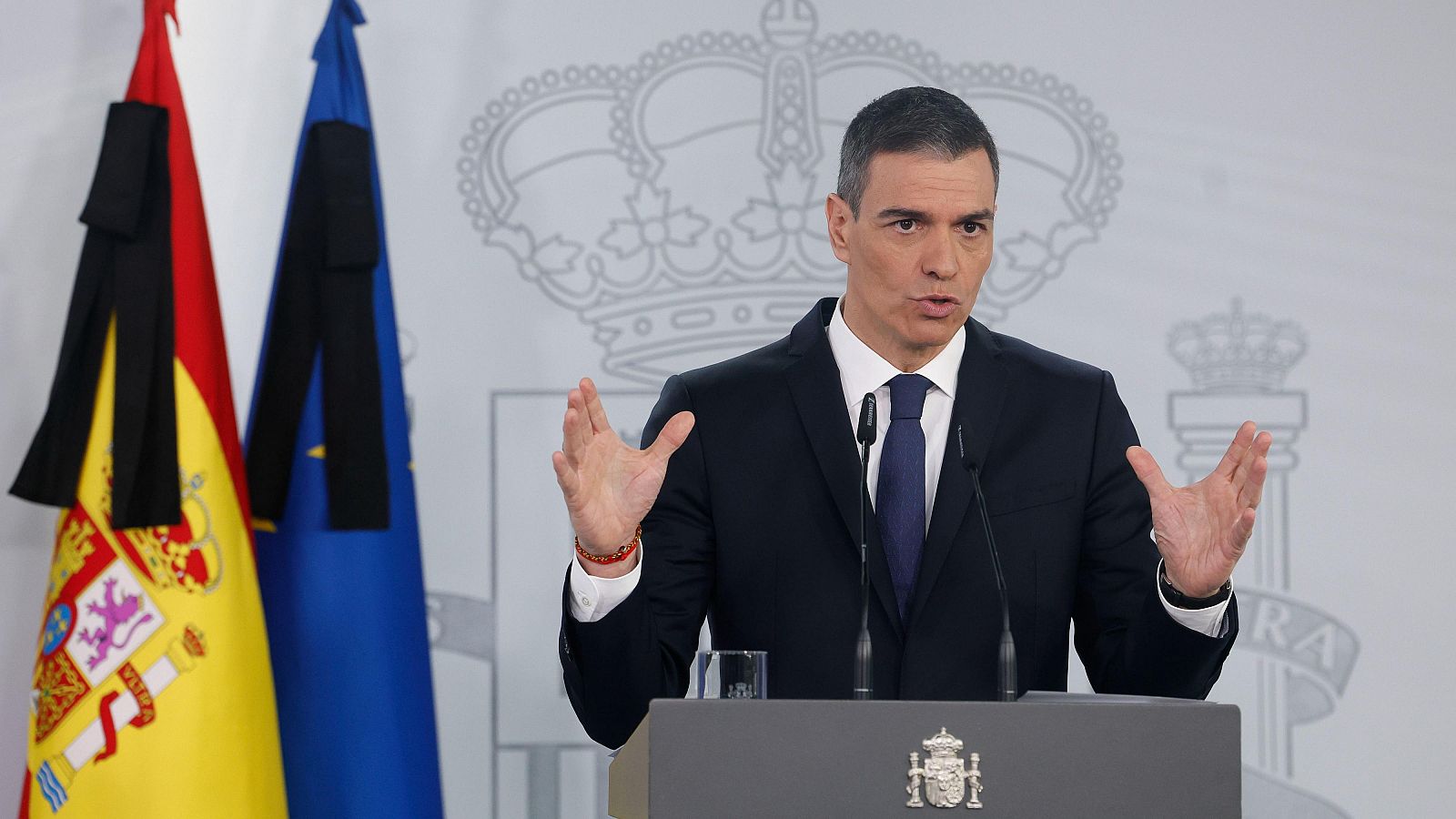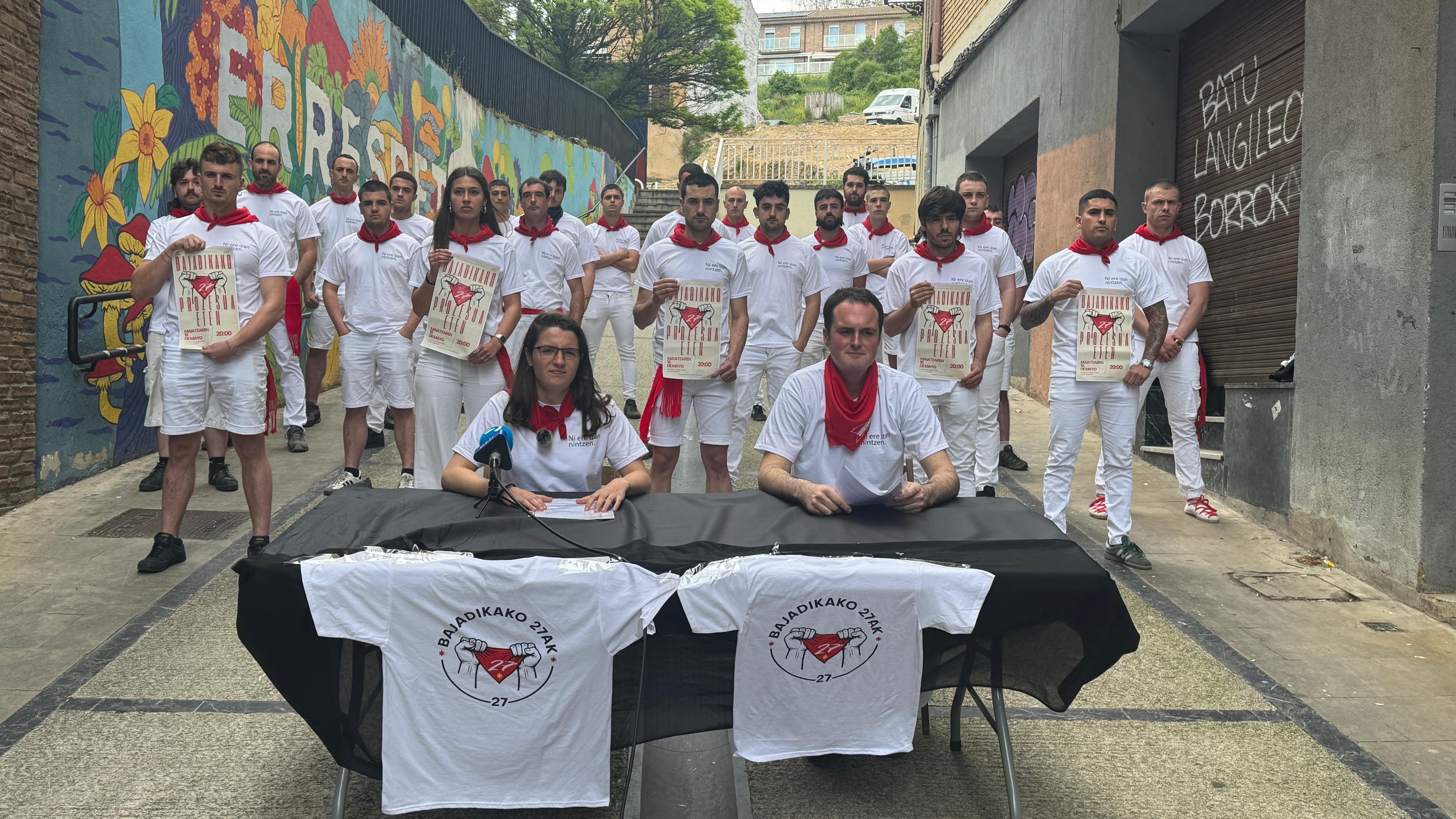“Environmental conflicts were previously local and limited, now there are many projects and from all over Navarre”
- The Foundation Subai Erakuntza offers technical, legal and administrative support to projects that damage the environment in Navarre. They have a history of years and have completed 11 appeals and reports to contest various projects: The TAV, quarries, thermal power plants, wind and photovoltaic projects, macromanzanas… have recently published a guide for citizen action in projects with environmental impact in Navarra which can be downloaded in PDF format on the Subai website. We have talked to Martin Zelaia García about the group’s trajectory and about the contents of the guide with Idoia Zulet Galé, a lawyer from the legal office of Arankoa who has produced the guide.
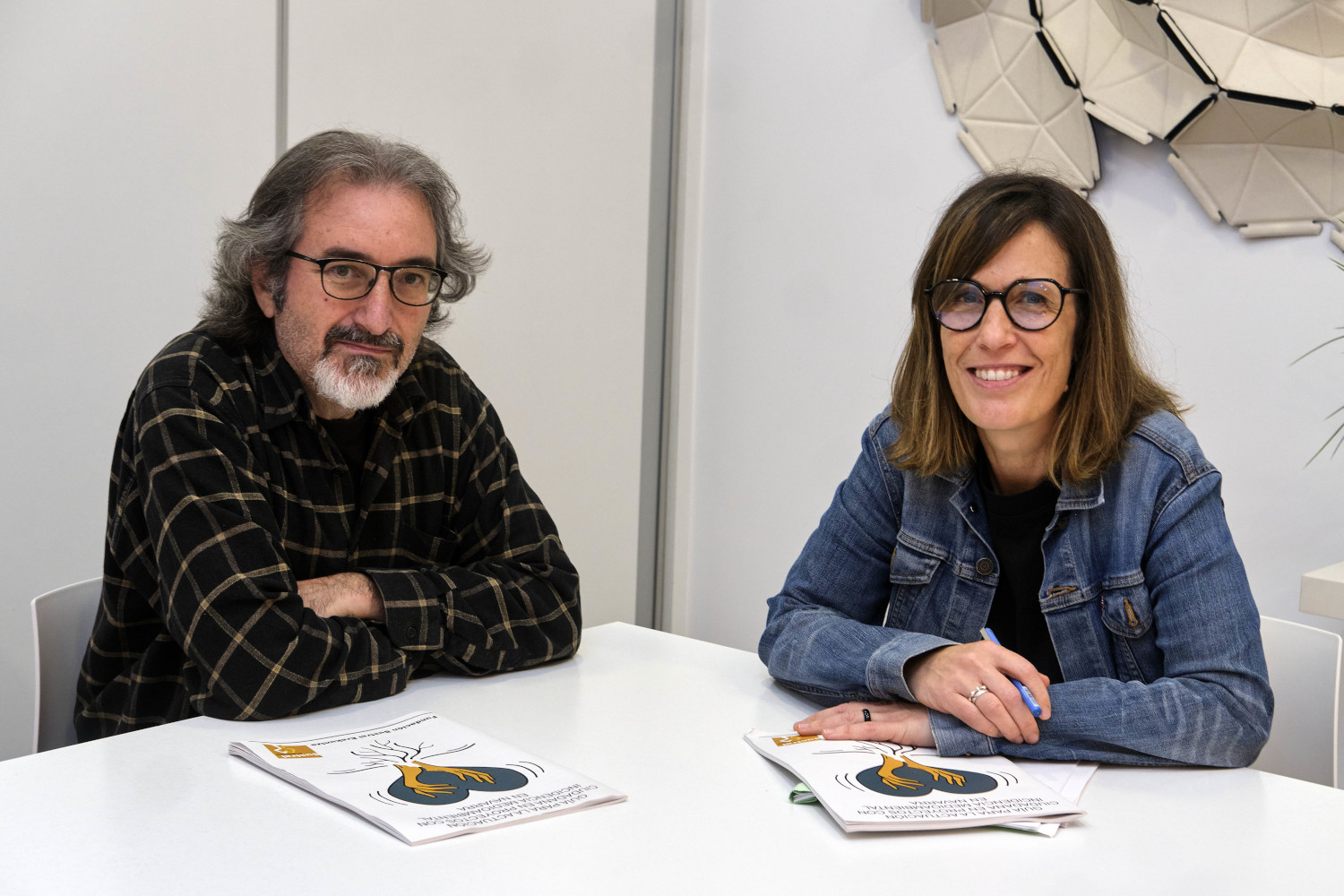
When and how did you create the Subai Erakuntza Foundation?
It was created in 2009. At that time in Navarre there were several environmental struggles: The TAV, the thermal plants of Castejón, the quarry of Erdiz… people started to move against these projects that would damage the environment, but many times they did not know where to go. Demonstrations were easier to organize, but they found it more difficult to carry out the legal, technical and administrative aspects. In Castejón there was a group of neighbours who had worked very hard on the legal side, and it occurred to us that this work could be useful for other conflicts. With them we started working on the idea of creating a group, they were already in contact with the lawyers of the Arankoa office who have accompanied us. That's how we started.
In the group you are neither lawyers nor legal professionals. Do you have more to hear?
I mean, you don't need to be a lawyer to influence that. At Subai Erakuntza we are volunteers and we all share a hobby: caring for the environment. We are all of the peoples, and most of us have experienced first-hand the damage that some projects have caused in our mountains or in our peoples. We have been immersed in different environmental struggles, both in the organisation of people and in the administrative process, resources, etc. In most projects, the legal and administrative procedures are similar. Subsequently, for resources, it is necessary to know the concrete technical part of each project, the geography, the tools used and their impact. For example, when two or three years ago they started in Navarra with the wave of wind and photovoltaic, we had to learn: what they were, what damage they would cause, what kind of mills and plates they were… read and work all that.

Have you noticed that projects that harm the environment have increased? Has the workload increased in recent years?
Well, the workload has always been similar, but the feeling is that the first conflicts were very local, more limited, and there were a few big macro-projects. The TAV, the Canal de Navarra… now everything has spread a lot, from all of Navarre and also from the CAPV they are calling us: photovoltaic polygons, wind projects, quarries… the conflict has spread to all of Navarre, and this news is adding to the global and large projects mentioned above. It's crazy to us, because there are many projects at once and many places, and each with its uniqueness.
He says they are also called from the CAV, but his work is limited to Navarra. Why?
Yes, we are limited to the Navarro area, because we cannot reach all the sites. In CAV, there is no such group, and that, in our opinion, is a problem. Sometimes we are going to give lectures and we have contact with people and associations there, such as the Euskal Herria Bizirik group. And we always say that we should organize a group of these characteristics in each country, or for the whole community. But what happens often? That we are moving against concrete projects, and once that project has disappeared, people get burned or tired and do not want to go on.
Can it be because, rather than from a global environmental awareness, we are moving against projects that directly affect oneself? If it happens in our country, but if not, not so much?
That's it, and if there's nothing around it, we don't move that much, or we don't give it that much importance. It is indifferent to me that these projects should be in Altsasu, in my village, or in Tudela. Now, for example, it is intended to centralise the sludge in the treatment plant throughout Navarre into two points, in Arazuri and in Tudela. They want to use it to make biogas, where you generate electricity, and then all that mud would throw it into the fields around it. These sludges contain contaminants, heavy metals -- it's tremendous damage. The Ribera is not so close to me, but what happens there is also important, let us not say in Navarre, with the weight the food fields have there.
In recent years have you managed to paralyse or hinder projects by administrative and judicial means?
Yes, there are many examples, perhaps not those that have stayed forever, but those that have stuck a lot. Perhaps the clearest is that of Erdiz. Magna began almost twenty years ago with the intention of building a giant water mine in the Artesiaga area. Baztan's neighbors refused, the company got scared and left. But shortly afterwards, the same project tried to do it in another nearby place, in Zilbeti, and there also happened the same thing; in addition to the neighbors of Zilbeti, people from all over Navarre mobilized against the project. However, the company continued its activity, introduced excavators and started the works illegally, as they did not have the authorization of the Ebro Hydrographic Confederation. The trial was held, they were ordered to stop and the courts concluded that the work could not be carried out, completely paralyzing the project. What has Magna done now? Well, he's back to Erdiz. The fact is that Zilbeti and Erdiz are in the same protected space, and if one cannot do it, in the other it surely cannot. But in the courts, until that's solved, the process takes a long time. And the opinion of the citizens is also influenced by judges.
Is it therefore important to work on the legal aspect with the opposition of the street?
Completely. It is essential that people start to move immediately in the face of these types of projects and that they have continuity. That is, that it is not now at its peak, then it stops… no, it is very important to always maintain the tension. So both the company and the judges will see that people are against the project. That's important. Our job is limited to advice and paper issues, not to organize mobilizations, but to say to people, “hear, you have to move.”
And for the two forms of opposition, street or judicial, is it better to move as soon as possible?
Yes, and in that sense, it is curious what is happening with wind and photovoltaic projects. On many occasions, the conduct of companies is often the concealment, and so the people of the people have learned half-heartedly, or late. What about wind farms? In Navarre, almost all the mountains are public, communal, and the company has to contact the municipalities or councils. But many times, businesses don't behave transparently and hide things. It has happened, for example, that instead of sending a letter to the City Hall, they call the mayor directly to start the road in secret, and that the project is more advanced for what the citizens have known. In some cases, citizens have heard of its publication in the official gazette and, in that case, it is already the deadline for appeal. In these cases, it is necessary to act quickly, collect information about the project, read it, prepare the resources… on the other hand, being aware of the project from the beginning, they can go with another tranquility to see the plans, to inform and to move people.
You have prepared a guide with the members of the Arankoa legal office. For what purpose?
It often happens to us that, when we raise legal and administrative doubts from an environmental group or from a neighbourhood association, we know some answers, but not all, and in those cases we do not know, we resort to lawyers. In addition, the same questions are often repeated. The idea has been to draft a document with the questions that are repeated, so that it will help not only us but also people. For the time being, the guide we have published is aimed at individual and collective people, but for the future we are working on another one for the municipalities.

Idoia Zulet Galé, Arankoa Legal Office:
“The guide explains the ways of citizenship intervention”
They have been working for years with the Subai Erakuntza group in the Arankoa legal office, offering administrative and legal support and advice on environmental issues. Attorney Idoia Zulet Galé has been the co-editor of the citizen action guide for projects with environmental impact in Navarra.
What have you received in this guide and why have you published it?
The guide presents a compilation of the environmental standards that citizens of the Foral Community of Navarra have for the defense and protection of their environment as active subjects. In fact, the rules on activities with an impact on the environment are very dispersed, as well as the regulations on participatory procedures. This makes it difficult to understand how people can have a real and effective influence on environmental protection.
Which of those somewhat unknown rights have been dealt with in the guide?
We have worked on the rights of different areas. Firstly, we have the right of access to information, that is, the right of the general public to receive and request environmental information. There is also scope for participation: individual and collective stakeholders can participate in environmental participation and consultation procedures, as well as in certain authorisation procedures. Finally, there is a section on access to justice. Justice, understood as an exercise in defense of its own interests and of popular action, can be used through administrative resources and recourse to the courts.
It is a field that is often distant to us, but as it says, ‘minority’ citizens also have a lot to do.
Yes, it is important that citizenship also relates to the legal and legal area in defence of the environment. It is up to the public administrations to ensure access to and participation of citizens in the legal sphere in a simple way, without economic difficulties or impediments. But the reality is that we still have a lot of difficulties to overcome and a lot of practices to improve.
Is it possible that one of the main objectives of the guide is to promote participation?
This guide aims to understand the possible ways in which citizens can intervene. It is important that this participation is made from knowledge and information, in a timely and conscious way. Subai Erakuntza is also dedicated to this, helping in key moments and in cases where citizen intervention is difficult or difficult.
Administrations, like city councils, will have other avenues in cases of environmental degradation, right?
Beyond issues of urban planning approval or compatibility, public administrations, such as councils, municipalities or communities, can intervene in specific consultation procedures, both at the level of administrative authorisation and in the defence of the property and rights of their competence.
Automatizazioaren eta abereen inguruan kuxkuxeatzen ari nintzela, ukuilu automatizatuen informazioa hasi naiz eskuratzen. Nire idazmahaiaren erosotasunetik idazten, gizakion kontsumorako modu masiboan esplotatzen ditugun abereen bizitzak nahiko penagarriak direla iruditzen zait,... [+]
Klima aldaketaren eraginez, munduko lurralde gero eta gehiago idortzen ari dira, milioika pertsonaren jarduera eta bizimoduak kolokan ezarririk. Fenomeno horren frontean dago India erdialdeko Maharashtra estatua, non klimaren berotzeari eta lehortzeari metatu zaizkien oihan... [+]










